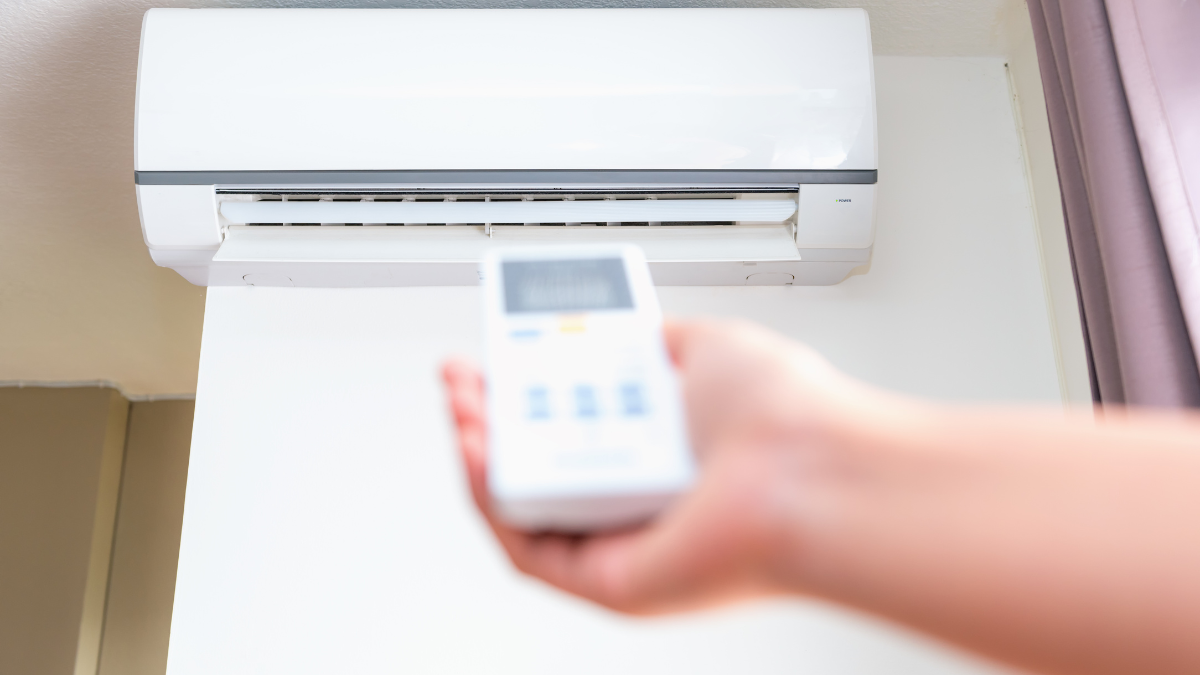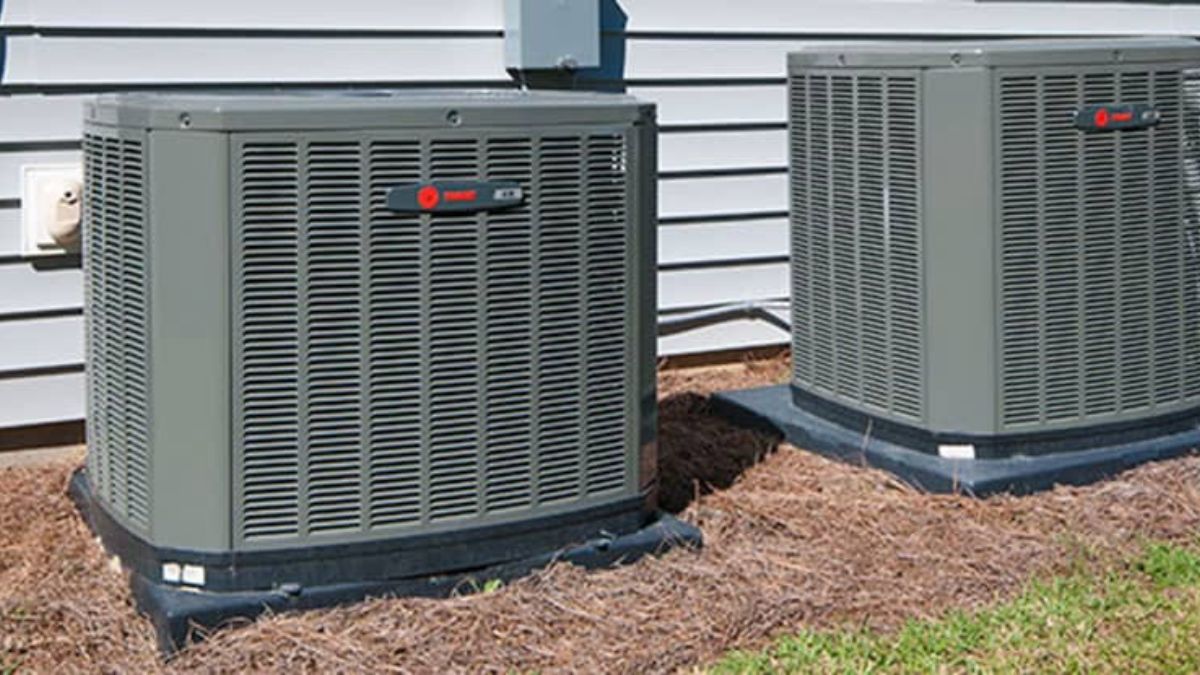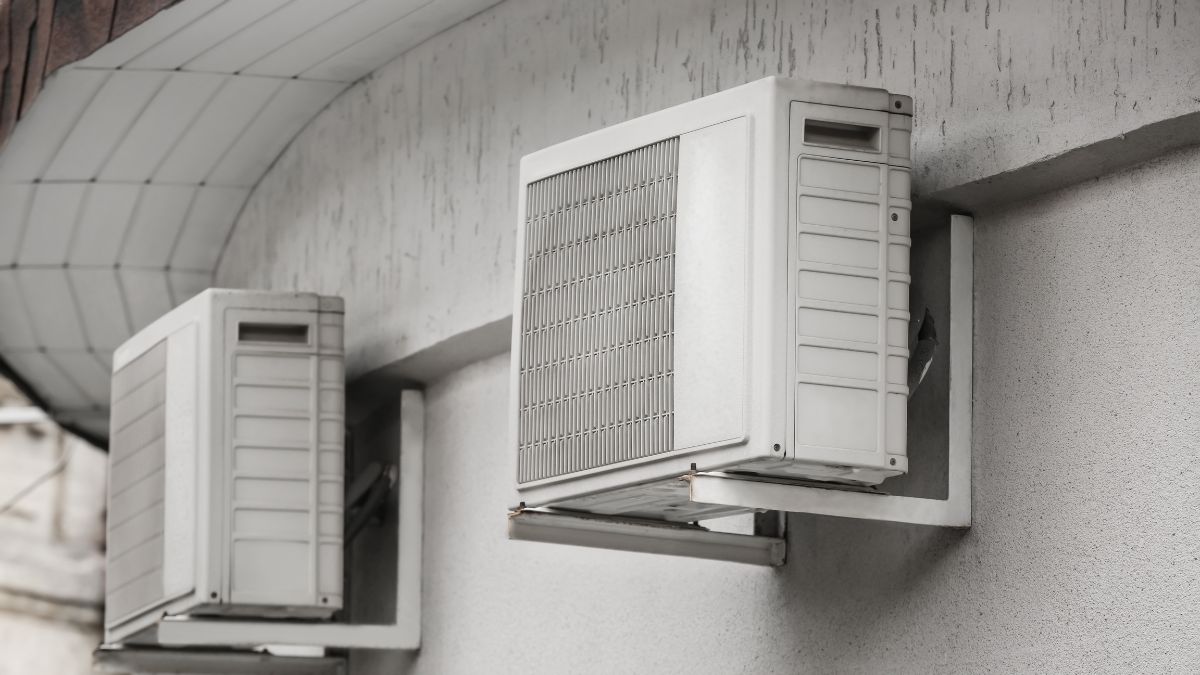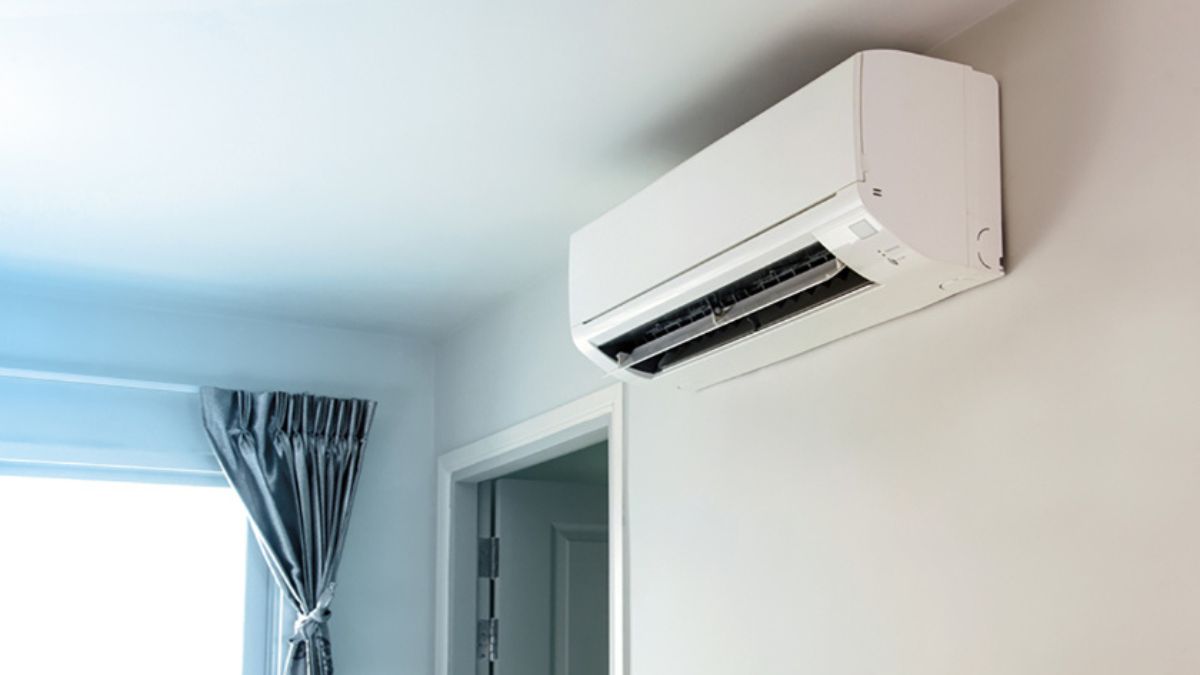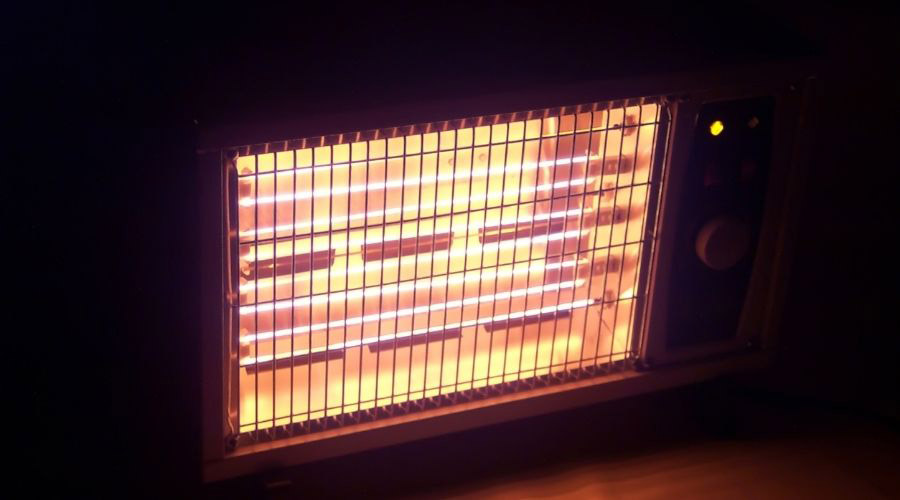
There’s no better feeling than falling asleep in a warm, cozy room. Nobody likes sleeping in a cold space! If your home isn’t adequately insulated, it can get pretty chilly during the night in the winter. Most people don’t heat their homes at night because they think it wastes money.
Others choose to use space heaters overnight. Space heaters are used to heat one room or one part of the room, like your bed area. Space heaters usually warn about fire risks, so is it safe to leave a space heater on overnight?
While it might be okay to leave some types of space heaters overnight, like ceramic, oil-filled, or infrared heaters, you should be aware of the dangers and safety precautions. Propane heaters should never be left on at night because they can produce carbon monoxide.
Keep reading to learn about the different types of space heaters and what you should do to minimize fire risk when leaving them unattended.
Types Of Space Heaters
A space heater isn’t one-size-fits-all. Each type of space heater has its benefits and disadvantages. A perfect space heater for your friend or family member won’t necessarily be perfect for you.
1. Ceramic Space Heaters
Ceramic space heaters are made primarily of plastic, but their heating element is made of ceramics. This heater is very durable and will last a very long time if you properly maintain it. There are two types of ceramic space heaters; convective and infrared.
Convective Ceramic Heaters
Most ceramic space heaters are convective, which means that the electricity first heats the heater’s aluminum part, giving heat to the ceramic part of the heater. It sucks in the air inside the room and draws it over aluminum and ceramic pieces.
Once it heats the air, it blows it out into the room. Most of these heaters have a built-in fan, which helps heat the room evenly and quickly.
The heater draws the air from its base, and since the cooler air is heavier and therefore lower than the warm air, it will successfully draw in all the cool air and heat it.
Don’t expect this heater to work the same in each room. How fast and well it will warm your room depends on its size and whether it is well-insulated.
Radiant Ceramic Heaters
The second type of ceramic heater is a radiant ceramic heater. This heater doesn’t have a built-in fan and uses electricity to warm the surrounding objects rather than the air.
It will produce a much higher temperature than the temperature of the objects that surround it. Those objects will absorb the heat, which will increase their temperature.
The heat that radiant ceramic heaters produce lasts longer than infrared ceramic heaters because they don’t heat the air; they only heat objects.
You can use this type of heater to heat only a few rooms, but not the whole house.
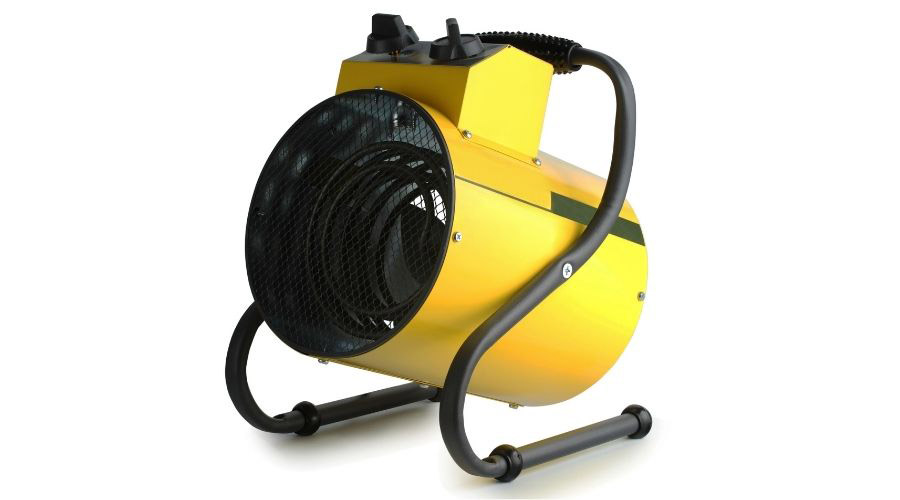
2. Fan Space Heaters
These heaters use a current that runs through a resistive heating coil that converts electrical energy into heat. The electric fan space heater sucks in the air over the resistive heating coil.
The air is then quickly warmed and blown back into the room, resulting in dry air, and these heaters are known to circulate dust.
Some people find their eyes irritated, and their throat hurts when they use fan space heaters. These heaters also create breathing problems for some people and even cause allergies.
Electric fan heaters can be used as regular fans if you deactivate the heating control. They work best when heating small rooms, for example, home offices or bedrooms.
Place them on the floor to make sure that they work most efficiently. This way, they will suck in the cool air near the floor and blow out warm air, which will rise.
When you compare electric fan heaters with other heaters, you realize they are very ineffective. Even though they are very cheap to buy, they are expensive to run.
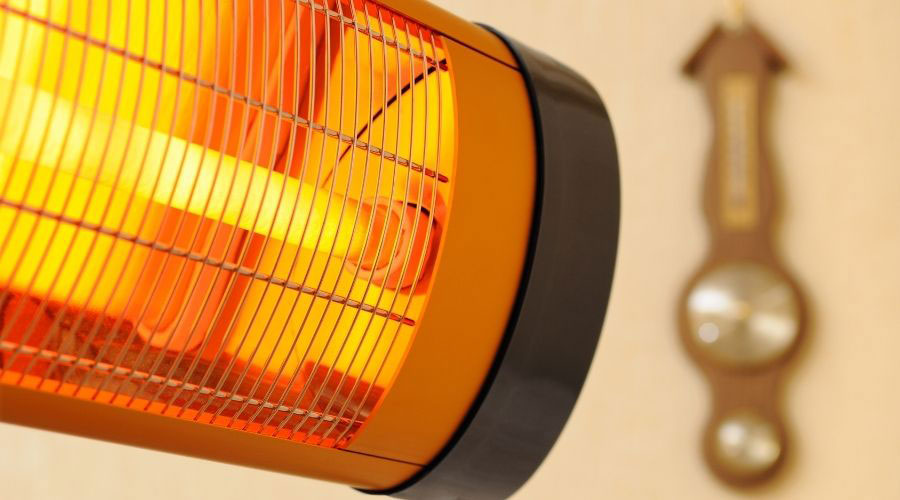
3. Infrared Heaters
Infrared heaters don’t heat the air as most space heaters do. Instead use a heat beam that is directed at the surrounding objects and heats them directly.
Since they don’t have a fan, infrared heaters are very quiet. They would be the best choice for where you need peace, like in a study or a bedroom. Infrared heaters have hot coils wrapped around the heat source to transfer the warmth evenly.
Infrared heaters are better for your health because, unlike most heaters, they don’t dry out the air. Also, they don’t reduce the amount of oxygen in the room. These heaters don’t create any toxic gasses or other fumes, and they don’t need open flames or fuel lines to work.
You won’t waste your money heating the room because infrared heaters focus only on heating the objects near them. These heaters work as soon as you turn them on, so there is no need to preheat them.
Infrared heaters are very easy to maintain. They don’t have a fan, so it can’t break, and there are no filters to replace. You only have to clean your reflectors from time to time to keep the heater working properly.
Since infrared heaters heat as soon as they are turned on, they stop heating as soon as they are turned off. Because this heater doesn’t warm the air, the room will cool off quickly.
Other heaters will need some time to cool off, which means they will still be warming the space even when turned off.
This heater isn’t the best option for kitchens, workshops, gyms, or other rooms where you move a lot.
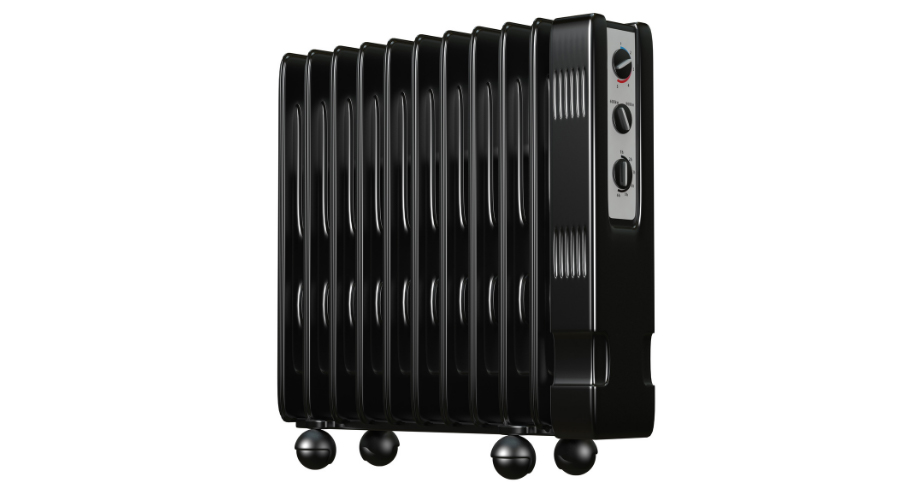
4. Oil-filled Space Heaters
Oil-filled space heaters are filled with thermal oil. They work by heating that oil. They have an electrical element completely submerged in the oil, and when the element heats up, all the heat is transferred to the oil.
Many people think that they have to refill their oil-filled space heaters. However, that is not true. Oil-filled space heaters are sealed, which means you can’t open them. The oil doesn’t get used up or evaporate.
If your heater has to be refilled, which is very unlikely, you should let the professionals do it because the oil is filled only to a certain level so it has enough room to expand.
The heating element in this type of heater consists of a coil of resistive metal wire inserted into the heater base. The friction creates heat when the electrons stick together and move through the wire.
The wire heats the oil, and the oil heats the body of the heater. This heater heats the air in the room, not the objects.
Some oil-filled heaters will have an ECO setting, keeping the room’s temperature consistent. You have to set the desired temperature, and the heater will turn off once the room reaches that temperature.
The heater will turn back on when the room temperature drops below the set temperature. This type of heater is great for bedrooms, bathrooms, living rooms, garages, and other rooms where you move around a lot.
Since oil-filled heaters don’t have a fan, they don’t produce any sounds. Some come with wheels, making them easy to take from one room to the other.
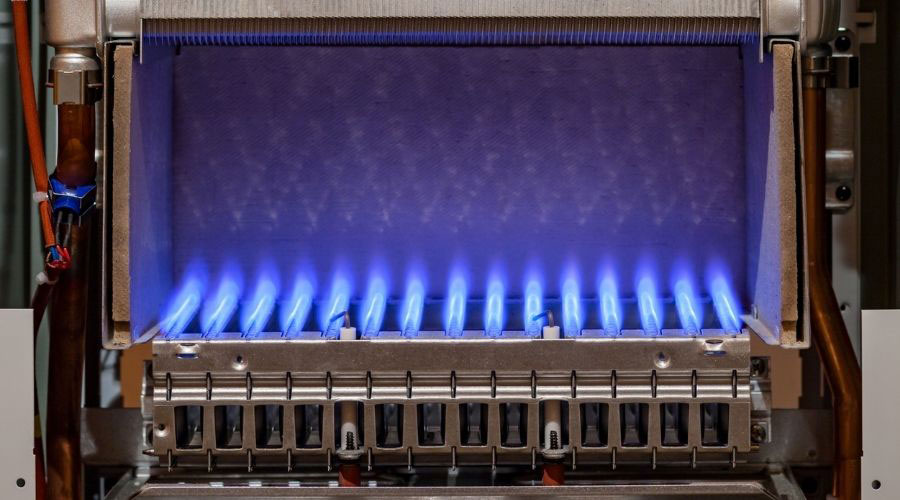
5. Propane Heaters
Propane heaters work by burning propane. This heater is the only type that doesn’t require any electricity. Since they don’t need to be plugged into a power outlet, they are very portable. They are a great heater if the electricity goes out in your home.
Propane space heaters produce heat that is of the highest temperature compared to other space heaters. When you compare them to electric heaters, they are about 20% cheaper to run.
This type of heater works similarly to the infrared heater. It doesn’t heat the air; it only heats the objects around it.
Propane heaters are not the best indoors because they can produce carbon monoxide. When you inhale carbon monoxide, it goes into your blood, where it competes with oxygen, depriving your body of oxygen, making you lose consciousness, and even killing you.
Getting a propane heater with a built-in alarm that alerts you when the room’s oxygen levels have reached too low is a good idea. CO detectors will give you enough time to properly ventilate the area and leave it until the carbon monoxide is gone.
When buying a propane heater, it is essential to see how many BTUs (British Thermal Units) will tell you how effective the heater will be.
6. Panel Heaters
Panels space heaters can warm the air. You can usually feel the current of warm air as soon as you turn the heater on. They work best in rooms you don’t spend much time in, such as studies, walk-in closets, or dressing rooms.
Many people think that panel heaters and electric radiators are the same, but they aren’t. Radiators use both convection and radiation to heat the room, while panel heaters only use convection.
Convection means that the air above the heater is heated first. This air then rises heavier cool air lowers while lighter warm air rises, creating an air current that you need if you want the heat evenly distributed through the room.
Radiation doesn’t create this air current; it directly heats objects and people.
Panel space heaters are much cheaper at the beginning than electric radiators because they are easier to produce and use simpler elements.
However, convection is a less effective way of heating the room, so the panel space heater will have to work extra hard to compensate, resulting in the heater using more energy, making it more expensive to run in the long run.
There are many panel heaters designs, and you can find the perfect one that compliments your rooms the best. Panel heaters are made out of light materials, which makes them lightweight. They also aren’t bulky like some heaters tend to be.
Some panel heaters can be programmed to fit your needs with a digital thermostat.
Can You Leave The Space Heater On Overnight?
Oil-filled Space Heaters
Oil-filled heaters are the most commonly used units for heating individual rooms. If you leave them in the correct position and at a far enough distance from flammable materials, you should be able to leave them on overnight.
You should avoid leaving them too close to the bed. Don’t leave your oil-space heater on overnight if you’re not sure it’s functioning correctly.
Ceramic Space Heaters
Ceramic heaters use passing electricity by heating their ceramic plate. After a while, this ceramic plate gets hot and heats your room, causing the inside of your heater to get hot while the outside plastic shell remains cool.
Since the outside of the ceramic heater stays cool, it is okay to leave it overnight because it doesn’t pose any fire threat.
Infrared Space Heaters
Even though the infrared space heater is cheaper on the market, it is also one of the safest to leave at night.
However, you should keep in mind that the outer part of the heater can get quite hot, so you shouldn’t leave it near your bed. A better solution would be to get an infrared heater with an exterior that is cool to the touch.
Propane Space Heaters
It would be best if you didn’t leave a propane space heater on overnight. It can produce carbon monoxide, which is very dangerous. The propane space heater is also a severe fire hazard.
Even though you might be able to leave some space heaters on overnight or unattended, it’s not the best idea to do so.
It’s also not a good idea to keep them plugged in when you’re not using them because leaving your space heater poses a fire and shock hazard, especially true for space heaters with no safety features.
What Might Happen If You Leave Your Space Heater On Overnight?
Many things could happen if you leave your space heater on overnight.
1. Shock Hazard
Like any electrical device, a space heater is a shock hazard when it’s plugged in incorrectly or the heater itself is damaged. These overloading circuits can lead to power failure and even fire.
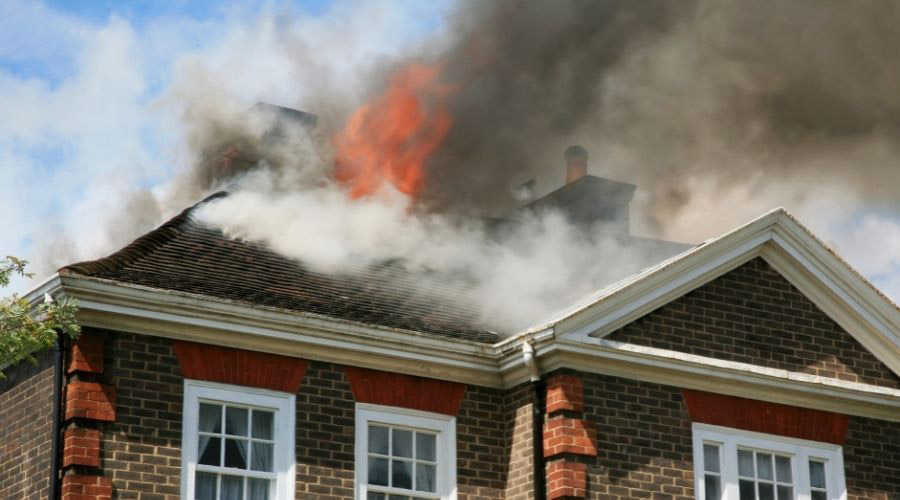
2. Fire Hazard
All space heaters are designed differently. Free-standing space heaters that are tall can easily tip over and cause a fire causing about half of all fires caused by space heaters.
Space heaters must be placed appropriately from flammable materials such as curtains, rugs, or furniture. If the space heater is near combustible material, it will set your home on fire.
If you use old space heaters, there is a greater risk of overheating, which causes fire in the wiring.
Not many people know this, but indoor space heaters are the second most common cause of house fires in the United States. About 25,000 fires a year are caused by space heaters.
3. Burns
Some space heaters have a shell that is cool and protects them from burns if they are touched. Other space heaters have very hot exteriors that can cause severe burns.
These heaters are hazardous if you have pets or small children. Improper use of space heaters leads to about 600 deaths and 6,000 burn injuries annually.
4. Drying Out Of The Skin
You might blame your dry skin on the cold weather, but you might not know that your space heater can also dry out your skin. The heat from space heaters that are left turned on all day can strip your skin of moisture.
You might think that dry skin is not dangerous, but it can cause other health issues, especially if you develop cracks on your skin.
If you cannot use your heater less often, you should install a humidifier that will provide your skin with enough moisture.
Do Space Heaters Have An Automatic Shut-off?
Some more expensive space heaters will have an automatic shut-off. However, even if you have a heater that has an automatic shut-off, you shouldn’t rely on it entirely. There are different types of automatic shut-offs.
Timed Shut-off Options
Timed shut-off allows you to set a timer for how long your heater will be on. Once the time is up, the heater will automatically turn off is an excellent feature if you want to warm your room up before you go to bed and you’re afraid you might fall asleep before you turn off your space heater.
Overhead Protection
Overheat sensors have thermometers that sense the temperature in the room. You can set a specific temperature, and once the air in the room reaches that temperature, the heater will automatically shut off.
Once the temperature drops below your set temperature, the heater will turn back on is a great way to save money and keep your space heater from overheating.
Tip-over Protection
The tip-over sensor is an automatic shut-off that uses sensors to see if the space heater has tipped over. If it tipped over, the space heater will shut off immediately.
Even though these space heaters are usually more expensive, they are worth getting since about half of all home fires are caused by space heaters.
If your space heater has an automatic shut-off, you can leave it unattended while you’re in another room. However, it would be best if you didn’t leave the house while it is on because sometimes automatic shut-offs fail, and if yours does, you will be able to notice and react immediately.
Do Space Heaters Give Off Carbon Monoxide?
Propane heaters can release carbon monoxide, and other heaters that burn gas to produce heat can cause carbon monoxide poisoning. Heaters that use electricity for power won’t emit any carbon monoxide.
Safety Precautions For Leaving A Space Heater Unattended
If you’re going to leave your space heater unattended or turned on overnight, there are some safety precautions that you should follow.
1. Carbon Monoxide Alarms
If you don’t already have carbon monoxide and fire alarms in your home, you should install them. They will tell you if too much carbon monoxide is in the air or a fire has started somewhere in the house.
2. Check The Wiring
You should check the wires of your space heater before each use. If you notice that the cables are damaged, don’t use the heater. Damaged cables can cause a fire.
3. Plug Your Heater In A Wall Outlet
It is best to plug your space heater into a wall outlet. If you have to use an extension cord, use the shortest one you can find and ensure it’s heavy-duty. It should have at least 14 gauge wires.
4. Keep Wiring Away From Pets & Children
Keep all wires away from your pets and kids. Even though you might think that your pets are well behaved, there is always a chance of them chewing the cables. On the other hand, small children get into everything.
Your pets could get electrocuted if they snack on wires. If you can’t keep the cables out of your pet’s reach, spray them with chew-proofing spray.
Depending on their age, children may step on, pull, and potentially chew on the wires. Make sure to create a barrier or teach them that a space heater is hot and should not be touched.
5. Space Heaters Are Not Meant To Be Furnaces
Never use a space heater to warm up your whole home. Space heaters are used to quickly warm only one room or even just a part of a room. The more you use your space heater, the greater the fire risk.
6. Regularly Dust Off Your Heater
Make sure you regularly dust the space you heat with a space heater. The space heater should also be 3 feet away from any flammable material.
Even though they are more expensive, you should get space heaters with safety features. They could save your life one day.
7. Don’t Use Damaged Heaters
If you notice any part of your space heater is damaged, don’t use it. Damaged space heaters are very likely to cause a fire.
8. Keep It 3 Feet Away From Objects
Maintaining your space heater away from other objects is essential when it comes to the safety of using your heater correctly, especially near your bedding, which can be a huge risk while you are asleep.
Make sure you keep your space heater away from the bed. Your bedding is combustible, and you can get burned if the space heater is too close to your bed.
9. Make Sure Your House Wiring Is Not Too Old
Many people do not realize that old wiring throughout the homes can cause many issues later. It is always important to ensure the wiring in your home is not too old to cause a circuit break.
Although it may be costly upfront, it is a better safe than sorry scenario. The newer your wires are, the less likely any fires will occur.
Conclusion
To summarize everything, in a nutshell, it is completely safe to keep certain space heaters on during the night. These heaters include infrared, ceramic, and oil-filled space heaters. However, some radiators, like propane heaters, should never be left on during the evening due to carbon monoxide poisoning or causing fires.
It is essential to remember the safety features each heater has and how you can take safety precautions to avoid burns, fires, or dry skin. We hope this article has helped you gain a better understanding!


